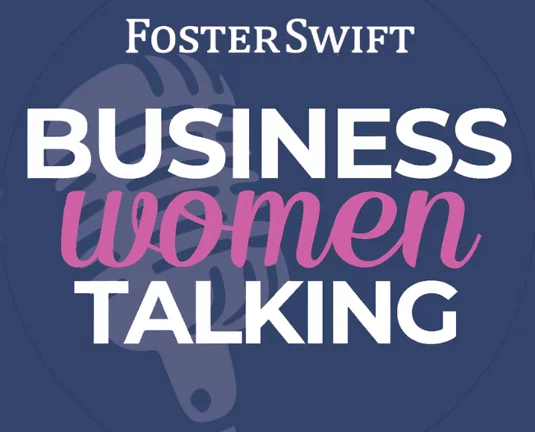Michigan Employers-FAQs on Coronavirus and Your Employees
This article was updated with new information on March 18, 2020.
 Like everyone, we all have questions about how to address the effect of the Coronavirus (COVID-19) on our personal and work lives. Here are some general answers to important things for employers to keep in mind. However, if you have a specific situation or concern, please reach out to our employment lawyers.
Like everyone, we all have questions about how to address the effect of the Coronavirus (COVID-19) on our personal and work lives. Here are some general answers to important things for employers to keep in mind. However, if you have a specific situation or concern, please reach out to our employment lawyers.
Do I have to pay employees who are out due to having COVID-19?
Currently, no law requires that employees must be paid specifically for COVID-19, however you should be aware that a bill pending in Congress (The Families First Coronavirus Response Act – HR 6201), if passed, will provide mandatory paid family and sick leave. When passed we will provide additional information to you.
All absences should be treated in accordance with organizational policy and applicable laws. If you have a time off policy or if you are covered under Michigan's paid leave act, the employee may be eligible for payment. Employers are free to develop programs for additional leave in light of the current situation. Employees may also be covered by state and federal law for at least an unpaid leave. Terminating an employee for being ill due to having COVID-19 or related symptoms may be a disability protected by state and federal law and may also be protected by the Family Medical Leave Act (FMLA). Employees who have extended leave may be eligible for disability insurance under your program or policy.
Can we take employee temperatures?
Under the EEOC guidance for businesses and employers to plan and respond to Coronavirus disease 2019, the answer is yes. See the following URL, https://www.eeoc.gov/facts/pandemic_flu.html specifically Section III Question 7.
Do I have to let all my employees work remotely?
No, you don't have to. But you may want to put a policy in place now so you can execute it if there is a mandatory shut down of your industry and your employees cannot come to work.
Do employees who have COVID-19 have a right to come to work?
As an employer you have a right to respond to a direct threat to a person or others. Working remotely, a leave, or the use of paid time off are some of the options available to an employee with COVID-19.
What if we find out that someone is out of work, can we ask them if they have COVID-19?
You cannot ask an employee if they have COVID-19, but you have the right to ask an employee that is absent on why they are absent, just like you would with any absence.
Can I shut down my operation, just to be careful?
Of course, BUT, be careful. There are requirements for notifying or paying employees under both the federal and state Workers Adjustment and Retraining Notification Act ("WARN Act"). There are exceptions for unforeseen circumstances, however, if you voluntarily close, that may not necessarily qualify. You should review with your counsel whether you fall under a federal or state WARN Act.
What do I do if employees say they won't work because they are afraid they may catch COVID-19?
It may depend. If they say there is an exposure at work, then there may be a potential right for the person to raise complaints about safety. You should evaluate the facts and consult your counsel. If they just have a general fear of COVID-19, without any facts, then no, there is no reasonable basis for their fear and they are subject to the same attendance program as all other employees.
What if employees demand masks?
Generally, you have to provide a safe work environment. But just because there is a serious virus circulating does not mean all employees need a mask in every work place. Generally, providing notice of your commitment to a safe and clean workplace and putting together a policy on how to address the issues is sufficient absent a potential exposure.
Can I screen visitors or customers?
There are some general questions that you can ask that are non-invasive, but the information must be protected. You should work with your counsel to develop a set of questions you can ask without running afoul of privacy and medical protection.
What should I do to prepare for what may happen?
Understand that you should have a remote work policy in place, staffing ready and review your attendance policy to handle the current reality. Employees may have childcare concerns in light of the closure of schools, so you should be prepared for unexpected absences. Review your leave and paid time off policies to ensure they are up to date. Keep apprised of the ongoing changes to the state and federal government's requirements of employers for any potential limitations on the number of individuals in one location.
Is there a chance the state or federal government could require me to shut my business down?
The State of Michigan has already closed all schools, public and private, as well as temporarily closing casinos and dine-in service for bars and restaurants (carry-out service is still allowed at the time this article was authored). So it is possible the ban could continue. You need to review your policies and put a plan together for how operations could continue if that happens. It would also be appropriate to determine how you can continue to pay employees during this time. You will not be required to pay non-exempt employees for time off not worked, but they could be eligible for paid time off. If you lay off employees they have the opportunity to request unemployment. However, other benefits, such as employer-sponsored healthcare may not be permitted to continue if an employee is no longer actively employed and this may trigger COBRA rights. Employers should discuss their options and obligations with their attorney and benefit advisors before a mandated workplace restriction occurs.
If you have specific situations you need to address, we recommend you contact a member of Foster Swift's Employment Law Team:
Michael Blum........................ 248.785.4722....... mblum@fosterswift.com
Karl Butterer.......................... 616.726.2212....... kbutterer@fosterswift.com
Clifford Hammond................. 517.371.8135....... chammond@fosterswift.com




